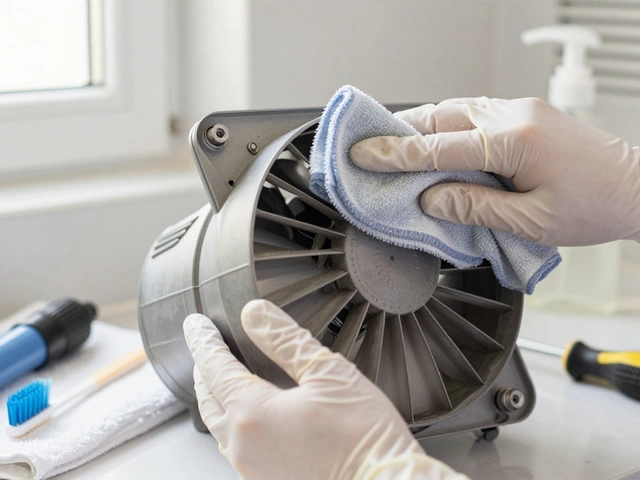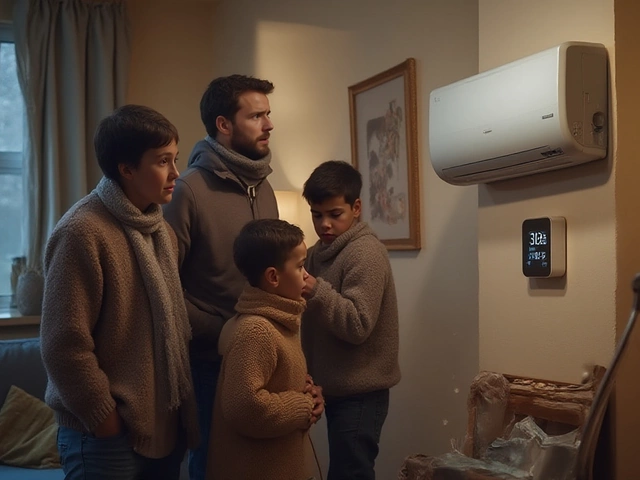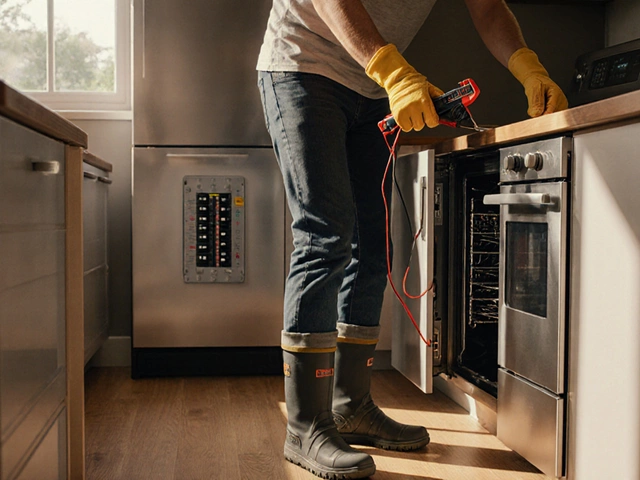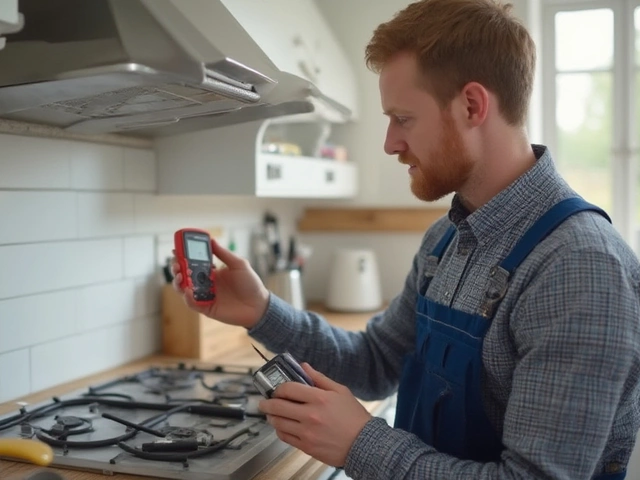Ever had the sinking feeling that your boiler just isn’t pulling its weight—and with a cold spell rolling in, no less? It’s almost like the universe knows when your home needs heat the most. Water runs cold, the radiators ignore you, or maybe you hear a noise that sounds like your pipes are haunted. You wonder, is it broken, or is it just being moody? Figuring it out quickly matters. The average boiler in the UK is pushed for seventeen years, and over 60% will experience at least one breakdown in that span. That’s not just inconvenient. It can be an urgent safety issue, especially if you’ve got young kids or vulnerable family members at home. Missing the earliest signs can mean bigger repair bills—and nobody wants to deal with that on a Wednesday at midnight.
Common Symptoms Your Boiler Is Broken
Boilers sometimes drop hints before shutting down completely. A cold radiator is a classic give-away, but there’s way more you should watch for. Let’s break down the clear warning signs that mean your boiler isn’t working as it should.
One of the most obvious symptoms is inconsistent heating. If you crank up the thermostat and still feel like you’re living in an icebox, a problem is brewing. Cold spots on radiators, no matter how high you turn the dial, signal issues with circulation or the boiler itself. Next, there’s the tricky business of hot water. Does your shower run cold out of nowhere? The hot tap splutters, or worse, stays icy? Your boiler is probably not heating water correctly anymore.
Listen up for suspicious sounds. No, your house isn’t haunted—your boiler can make banging, whistling, or gurgling noises when it’s not happy. HVAC engineers call these ‘kettling’, ‘banging’, or ‘whining’ noises. Kettling often suggests limescale build-up—really common in hard water areas—and restricted water flow. Banging can point to pump failure or even air in the system. If you hear something out of the ordinary, especially loud or frequent, don’t just shrug it off.
Check for leaks or puddles around the base of your boiler. This isn’t just messy; water can corrode components and risk electrical faults, which can be dangerous. It doesn’t matter if it’s a drip or a puddle—get it checked.
Take a look at the boiler’s display. Is there an error code, flashing light, or total blackout on the screen? Modern boilers usually show fault codes, which help you pinpoint what’s up (the manual or manufacturer’s website will give code details). Even if it’s something simple, like a reset button that needs pressing, don’t press blindly—error codes are warnings, not suggestions.
The smell-test works, too. Ever smelled eggs or sulphur near your boiler? That’s not breakfast—it’s a sign of a gas leak. Any unusual smell means you need to act fast—open windows, don’t use electrical switches, and call a Gas Safe registered engineer, stat.
Want some stats? According to a survey by Which?, noisy boilers make up 25% of callouts, while no hot water accounts for nearly 33%. Those are not rare problems.
Sometimes the signs aren’t as obvious. Maybe your energy bills spike suddenly (with no wild family hot-water marathons). That can mean your boiler’s working overtime, compensating for an internal issue. If the pilot light keeps going out or burns yellow instead of blue, that’s another red flag—it means incomplete combustion and could release dangerous carbon monoxide. Lifesaving tip: If you don’t have a working carbon monoxide alarm, make it your weekend project to install one.
So, if you spot any of these hints—persistent cold zones, odd noises, strange smells, or leaks—don’t ignore them. Early action can save money and keep your family safe.
Simple Things to Check Before Calling for Help
The temptation to panic is real, but sometimes boiler issues are embarrassingly simple to fix. There are a few quick steps you can try before you reach for the phone—and sometimes, you’ll actually get things running again without waiting for a pro.
First, have a glance at the thermostat. More than a few times, I’ve seen someone endure an Arctic morning just because the thermostat got bumped down. Double-check it’s set to your usual number and is actually switched on. Also, see if your timer or programmer is working right—power cuts can scramble the settings.
Ever bled a radiator? Trapped air can stop radiators heating up. If you feel lots of cold areas, especially at the top of the radiator, grab a radiator key and carefully let the air out until water trickles out smoothly. It’s easier than you think—just have a towel ready.
Check the boiler pressure if you have a combi or system boiler. There’s usually a gauge on the front—healthy pressure usually sits between 1 and 1.5 bar when the system is cold, or up to 2 bar when hot. Too low (<1 bar) or too high (>2.5 bar) can stop the boiler. If it’s low, you can top it up using the filling loop—most boilers have a simple tap or lever, and there should be instructions on or near the unit. Go slow, watch the gauge, and close the tap when you hit the target zone. If it keeps losing pressure, though, that’s a sign of a leak.
Look for power issues. Is your boiler display totally blank? Try the basics: check the fuse box for tripped circuits, or turn the boiler off for 60 seconds before switching it back on. Appliances around boilers, like thermostats or smart meters, can sometimes upset the power as well. No luck? Time to check other possible blockers—like gas supply. If other gas appliances (like a hob) also won’t ignite, you might have a supplier issue.
Don’t forget about external factors. Super-cold weather sometimes freezes the condensate pipe—a plastic pipe running outside from the boiler. If you suspect this, pour hot (not boiling) water over it, then reset the boiler. If the pipe keeps freezing, lag it with insulation from your local DIY shop.
Boilers often have a ‘reset’ button or switch. If there’s an obvious error code, check your manual for guidance—it might tell you when a safe reset is possible. But here’s the deal: If the same fault code pops up again and again, that signals a deeper issue that only a qualified engineer should deal with.
So here’s a handy quick-check list:
- Is the thermostat set properly?
- Are all radiators bled and not blocked?
- Is boiler pressure in the right range?
- Any tripped electrics or power cuts?
- Are other gas appliances working?
- Is the condensate pipe frozen?
- Are there error messages on the display?
If you’re not sure—or if you spot leaks, burning smells, or repeated failures—don’t keep fiddling. Safety first.
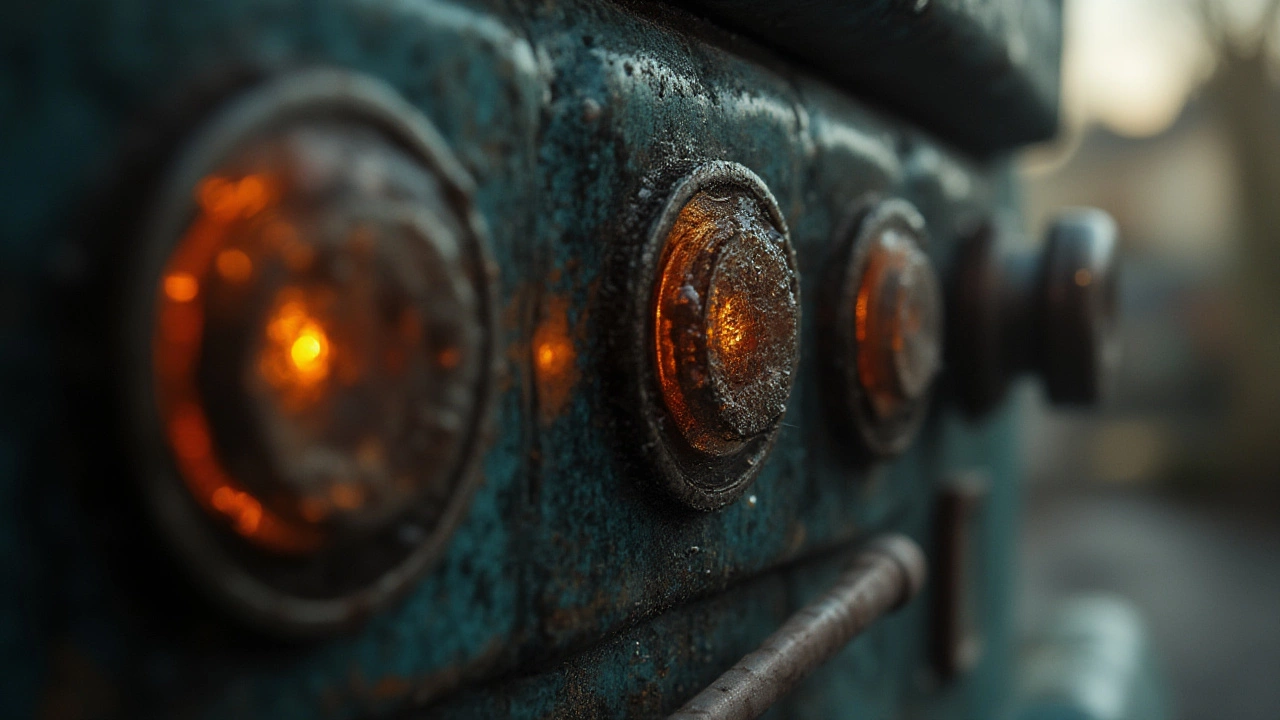
Risks of Ignoring Boiler Problems
It’s easy to shrug off a creaky radiator or put up with that cold shower for a few days. But hoping a broken boiler fixes itself? That’s a losing game. For starters, neglecting boiler repairs can quickly go from inconvenience to a money pit. Left alone, small leaks turn into internal corrosion, scale build-up can block pipes, and faults with the pump or fan can trash other components. British Gas reported that the average boiler repair cost hit £249 in 2024. That stings, but a full replacement blows past £2,500. Small problems, ignored, snowball fast.
More worrying are the safety risks. Gas boilers burn fuel to heat your home—which means the risk of carbon monoxide leaks if things aren’t running right. The ‘silent killer,’ carbon monoxide (CO), sends around 4,000 people to A&E annually in the UK. You won’t see or smell it, and older boilers skimped on failsafes now built into modern models. Even if your boiler seems to soldier on, incomplete combustion can trigger headaches, nausea, confusion—or, in rare cases, much worse. Install an audible CO alarm in any room with a gas boiler and check the batteries often.
Plus, leaks and damp from your boiler can do real structural damage to your home. Dripping boilers soak walls and floors, boost your risk for mould (bad for asthma), and even warp timber or weaken plaster. A 2023 survey showed that 42% of household insurance claims for water damage related to plumbing and heating issues. Your insurance company will want you to stay on top of maintenance, so avoid nasty surprises by acting fast.
Not cold yet? Even if the heating limps along, breakdowns often strike when the weather turns—January and February are the UK’s top months for callouts, with engineers stretched thin. Catching a fault now, in July, means you can fix or replace the boiler before cold weather bites and prices soar.
Summing up: Ignoring symptoms to save a few quid can end up costing much more, both in repairs and potential health risks. Acting when you spot trouble? That’s the smart, safe move.
When to Call a Professional (And What to Expect)
So you’ve hit all the basics—checked the pressure, bled the radiators, tested the thermostat—and you’re still facing a stubbornly cold house. Or, worse, you’ve noticed a leak, strange smells, error codes, or scary noises. It’s time to get the experts in.
Legally in the UK, anyone working on a gas boiler must be Gas Safe registered. Always ask for their ID on arrival—genuine engineers are proud to show it. If your boiler’s still under manufacturer warranty, use an approved engineer to keep that protection valid. Many home insurance plans also offer boiler cover; check your details before booking, because you might save cash.
When you call, be prepared to give details. List the symptoms you noticed, the make and model, any error codes on display, and what troubleshooting you’ve already tried. This helps engineers bring the right parts and cut repair time. Most repairs happen within an hour or two on-site. If your boiler’s very old (over 12 years) or has a repeated history of breakdowns, an engineer will probably talk through your replacement options too, especially if parts are now obsolete.
Want to know what repairs cost in 2025? Here’s a quick look at typical fees:
| Boiler Issue | Average Repair Cost | Usual Repair Time |
|---|---|---|
| Pump Replacement | £280 | 1-2 hours |
| Fan Replacement | £210 | 1 hour |
| Pressure Relief Valve | £140 | 45 min |
| Thermostat Issue | £120 | 30 min |
| Simple Repressurising | £70 | 15 min |
Don’t be shy about asking questions on the day. Good engineers will explain what went wrong, show you the faulty part, and give tips to help you avoid repeats. Ask if your boiler is still working efficiently—sometimes an older boiler is burning more fuel (costing you more!) than it should, and an upgrade saves money in the long run.
If you’re ever unsure about a company, check them out online—sites like Checkatrade and Trustpilot reveal what past customers think, warts and all.

Prevention: Keeping Your Boiler in Top Shape
Want to avoid the dread of no-heat mornings? A bit of prevention goes further than you think. Think of your boiler like a car. You wouldn’t skip the yearly MOT, right? Same for your boiler—an annual service keeps it safe, efficient, and less likely to let you down.
Book a service with a Gas Safe engineer every 12 months—especially before winter bites. They’ll clean internal parts, test safety devices, check for leaks, and spot developing problems before they turn into full breakdowns. Data from the Energy Saving Trust suggests that proper maintenance can reduce energy bills by up to 10%—and in a year with steep energy prices, that’s no small thing.
Keep an eye on your boiler pressure. If it drops often, call an expert to check for hidden leaks. Soft water areas don’t escape trouble—scale build-up is still possible, so ask your engineer what you can do to guard against it. At home, try to bleed radiators twice a year—before winter and after you turn the heating back off in spring. It helps your system run smoother and heats rooms more evenly.
Lag that outside condensate pipe with foam insulation sleeves, especially if you’re in a region hit by late freezes. Blocked or frozen pipes cause around 18% of cold-weather call-outs in northern England and Scotland. Don’t ever cover vents or air bricks near your boiler. Modern units need fresh air to burn cleanly.
If you’re thinking long-term, consider a smart thermostat or heating controls. These gadgets help you track usage, spot problems early (many now sync with apps that diagnose boiler errors), and increase your energy savings. Not to mention, they’re pretty slick to use.
Affordable monthly cover plans are out there—like those from British Gas, HomeServe, or local providers. For about the price of a streaming service, these can cover emergency repairs. Just read the fine print, as they don’t always cover every part or every type of boiler.
Finally, install and regularly check carbon monoxide alarms and smoke detectors every twelve months. An alarm costs a tenner and could be a literal lifesaver if things ever go wrong.
All in all, a broken boiler is a pain—but catching the signs early, knowing what you can safely try, and acting quickly for help makes all the difference. Keep your eyes, ears, and nose tuned in, look after your system, and most of the time, you’ll stay safe and warm without any unwelcome icy shocks.




